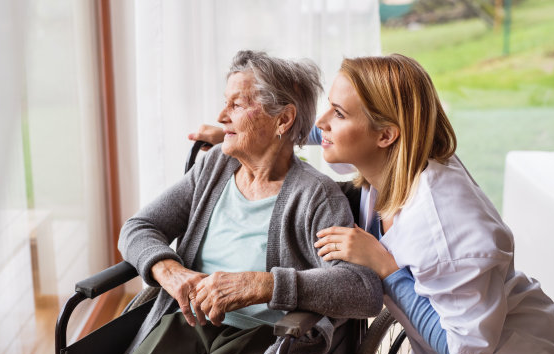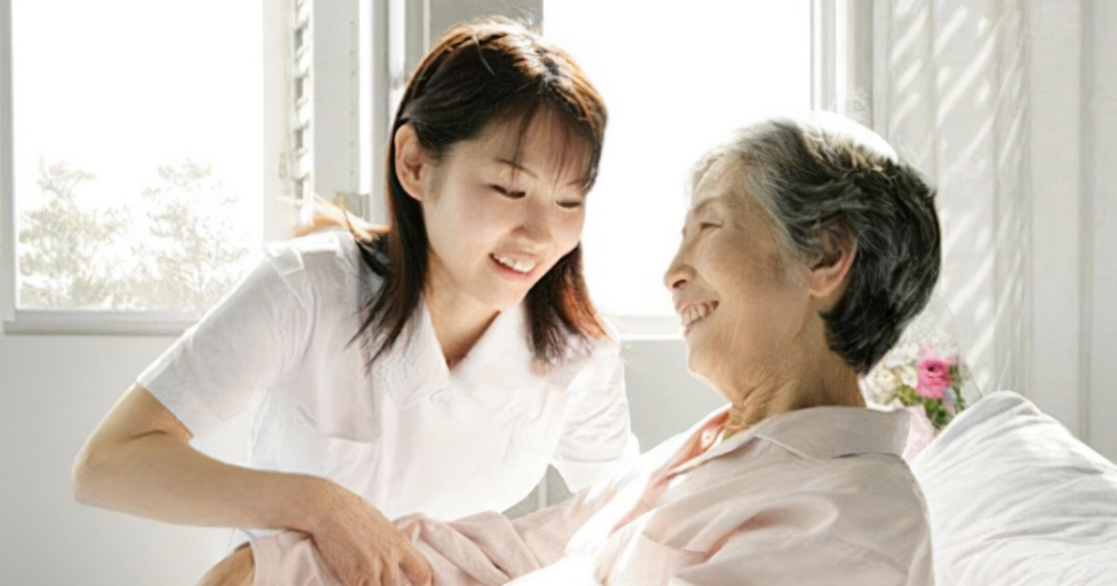Care for 280 million old people to guard "the most beautiful sunset red"
A few days ago, the General Office of the CPC Central Committee and The General Office of the State Council issued the Opinions on Promoting the Construction of the Basic Elderly Care Service System (hereinafter referred to as the Opinions), which further clarified the matters of basic elderly care services and provided a top-level system design reference for its implementation path.
Basic elderly care services refer to those provided by the state directly or through certain ways to support relevant entities to provide the elderly with basic, inclusive and backstop services, including material help, care services and care services. From the list of national basic elderly care services published in the annex to the "Opinions" (hereinafter referred to as the "list"), it targets 12 categories of objects, covering 16 service items, of which 7 are care services, accounting for more than 40% of the overall proportion, and the rest include material help, care services, etc.
The "Opinions" pointed out that the object, content, and standards of basic elderly care services are dynamically adjusted according to economic and social development, and the "14th Five-Year Plan" period focuses on the needs of basic elderly care services when the elderly face difficulties such as disability, disability, and no care that are difficult for families and individuals to cope with.
"Opinions are an important step to implement the national strategy of actively coping with aging population, implement the important spirit of the first Meeting of the 20th Financial and Economic Commission of the CPC Central Committee on high-quality population development, and improve and improve our country's old-age service system. It is an important measure to promote the implementation of old-age support in our country. Li Lu, a researcher at the Institute of Social Development of the Chinese Academy of Macroeconomics, told reporters in an interview.

Basic elderly care services are available to the vast majority of the elderly
Data from the National Bureau of Statistics show that by the end of 2022, China's elderly aged 60 and above exceeded 280 million, accounting for 19.8% of the total population, of which 210 million aged 65 and above, accounting for 14.9% of the total population, the population aging situation is grim.
Recently, the White Paper on the Development of China's Home Care Industry (2021-2022), organized by the China Aging Industry Association, was released in Beijing. According to the White Paper, according to research statistics, by the end of 2021, the elderly living in elderly care institutions in China will account for less than 1% of the total elderly population. According to the data of the fourth sample survey on the living conditions of China's urban and rural elderly population, 95.6% of the elderly are mainly cared for by family members, and 2.8% of the elderly are mainly cared for by domestic staff such as nannies and hourly workers, with the combined ratio of 98.4%, which also means that home care is the choice of the vast majority of the elderly in China. The White Paper pointed out that China's aging population is becoming increasingly severe, and the pressure of home care is increasing, but the overall quality of home care services is not high, and the supply of effective products and services is insufficient, which can not meet the basic needs of home care services.
According to the annex list of the Opinions, relevant care services include: comprehensive assessment of the ability of the elderly aged 65 and above; Eligible disabled elderly family members can be given certain subsidies to participate in care training; The county civil affairs departments shall provide basic living conditions, treatment and care for the elderly in extreme poverty who are provided in scattered or centralized support.
"The biggest highlight of the Opinions is to adhere to the principle of basic and universal benefits." Li Lu analyzed that the basic pension service is a basic, basic and inclusive service, which is not only for the elderly who are traditionally guaranteed by extreme poverty and subsistence allowances, but also for the elderly with special difficulties such as difficult life and unable to take care of themselves, providing basic security services for all the elderly over 65 years old to provide comprehensive assessment of their ability and provide various kinds of pension services according to the results. Therefore, the basic elderly care service is a set of system design and service system, which is no longer the traditional rescue service for a small number of people, but the full coverage service for the vast majority of the elderly.
Gradually realize from "people looking for services" to "service looking for people"
"Opinions" pointed out that the establishment of accurate service active response mechanism. We will establish a statistical survey and release system for the situation of the elderly, carry out comprehensive assessments of the abilities of the elderly, formulate and improve unified national assessment standards, and promote the mutual recognition of assessment results across the country and the use of all departments as needed. Relying on the national integrated government service platform, we will promote cross-departmental data sharing, establish a precise identification and dynamic management mechanism for elderly people with difficulties, refine the institutional arrangements linked to the resident population and service radius, and gradually realize the shift from "people looking for services" to "service finding people". Promote the integration of resources in the identification, treatment, service delivery, and barrier-free environment of disabled elderly people, and strengthen the guarantee of elderly care services for disabled elderly people.

"The basic elderly care service defines a comprehensive assessment of the ability of the elderly, which is the basic system design." Li Lu said that the comprehensive assessment is a comprehensive judgment of the elderly's own health and ability, family economic status, etc., which can provide a basis for the elderly to choose elderly care services that meet their own needs, and also provide a basis for the government to accurately target the security object. For example, the "Opinions" proposed to promote cross-departmental data sharing and establish accurate identification and dynamic management mechanisms for elderly people with difficulties, which are important systems and key measures for accurate matching and proactive service. Therefore, the basic situation of the elderly based on shared data and comprehensive assessment will become the basis for the supply of basic elderly care services, whether the elderly obtain from the market and society themselves, or the government matches the security services to the elderly with special difficulties.
The Opinions pointed out that the supply capacity of basic elderly care services should be improved. Local governments at or above the municipal level with districts shall incorporate the construction of elderly care service facilities (including the academy) into relevant planning, formulate overall plans to promote the development of elderly care service facilities at different levels in combination with factors such as local economic and social development level, elderly population status and development trend, and environmental conditions, and reasonably determine the type, quantity, scale and layout of facilities. Form a network of service facilities for the elderly with scientific structure, complete functions and reasonable layout. All newly-built urban areas and residential areas shall be equipped with old-age service facilities in accordance with standards and requirements; Old urban areas and residential areas that have already been built should be combined with the renovation of old residential areas in cities and towns, and efforts should be made to improve elderly service facilities through reconstruction. Elderly service facilities invested or funded by the government should be prioritized for basic elderly care services. By 2025, we will ensure that every county (city, district, banner) has at least one county-level support service institution focusing on professional care for disabled people with extreme poverty.
In addition, in terms of improving the facilitation and accessibility of basic elderly care services, relying on and integrating existing resources, the development of street (township) regional elderly care service centers or service complexes for the elderly. Support elderly care institutions to operate community elderly care service facilities, and can coordinate elderly care service resources according to regulations. We will support social forces in providing day care, meal assistance, cleaning assistance, rehabilitation care and other services to the elderly. Rely on street (township) regional elderly care service centers or provide family elderly care guidance services for elderly service complexes, community elderly care service facilities, villagers' committees, community neighborhood committees and other grass-roots forces to help elderly family members improve their care ability. The care training of disabled elderly family members will be included in the directory of government purchase of elderly care services, and qualified disabled elderly family members who participate in relevant vocational skills training such as care training will be given vocational training subsidies according to regulations.

Both material assistance and care and care services are available
"The biggest highlight of the opinions is the proposed 'national list of basic elderly care services'." Li Lu said that the proposal of the list not only implements the task of the basic old-age service list system in the "14th Five-Year Plan" National Old-age Cause Development and old-age Service System Planning, but also enriches the connotation of basic old-age service in the "National Basic Public Service Standards (2021 edition)". "The list makes up for the previous problem of 'less services with subsidies' and includes three types of material help, care services and care services, which is equivalent to covering both materials and services."
As can be seen from the list, in addition to providing material assistance such as basic pension on time and in full for eligible insured elderly, basic pension and personal account pension for eligible insured elderly, old age allowance for the elderly aged 80 and above, and nursing subsidy for the elderly with financial difficulties who are determined to be unable to take care of themselves, Of the 16 service items in the list, 7 are care services, accounting for more than 40% of the overall proportion.
For example, to provide comprehensive assessment of the ability of the elderly aged 65 and above, do a good job of linking the comprehensive assessment of the ability of the elderly with the health status assessment; In accordance with relevant standards, gradually provide barrier-free renovation services for the families of the elderly with financial difficulties every year; Eligible disabled elderly family members who participate in caregiving training and other related vocational skills training shall be given vocational training subsidies according to regulations.
In addition, the "opinions" also emphasized the provision of visiting care services for elderly people living alone, empty nests, left-behind, disabled, severely disabled, and special family planning families. To support grassroots elderly associations and voluntary service organizations to participate in visiting care services.
- ABB
- General Electric
- EMERSON
- Honeywell
- HIMA
- ALSTOM
- Rolls-Royce
- MOTOROLA
- Rockwell
- Siemens
- Woodward
- YOKOGAWA
- FOXBORO
- KOLLMORGEN
- MOOG
- KB
- YAMAHA
- BENDER
- TEKTRONIX
- Westinghouse
- AMAT
- AB
- XYCOM
- Yaskawa
- B&R
- Schneider
- Kongsberg
- NI
- WATLOW
- ProSoft
- SEW
- ADVANCED
- Reliance
- TRICONEX
- METSO
- MAN
- Advantest
- STUDER
- KONGSBERG
- DANAHER MOTION
- Bently
- Galil
- EATON
- MOLEX
- DEIF
- B&W
- ZYGO
- Aerotech
- DANFOSS
- Beijer
- Moxa
- Rexroth
- Johnson
- WAGO
- TOSHIBA
- BMCM
- SMC
- HITACHI
- HIRSCHMANN
- Application field
- XP POWER
- CTI
- TRICON
- STOBER
- Thinklogical
- Horner Automation
- Meggitt
- Fanuc
- Baldor
- SHINKAWA
- Other Brands




































































































































